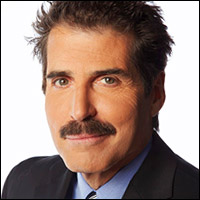
Fox News journalist John Stossel, who recently underwent an operation for lung cancer, on Wednesday wrote that although New York-Presbyterian Hospital’s medical care is excellent, “the hospital’s customer service stinks.”
Doctors “keep me waiting for hours, and no one bothers to call or email to say ‘I’m running late,'” Stossel said.
He was given X-rays, EKG tests, echocardiograms and blood tests, but he doubted all were needed. “No one discusses that with me or mentions the cost. Why would they? The patient rarely pays directly.”
Stossel had to “fill out long medical history forms by hand and, in the next office, do it again. Same wording.”
Socialist Bureaucracies
Customer service in hospitals “is sclerotic because hospitals are largely socialist bureaucracies,” Stossel wrote. “Instead of answering to consumers, which forces businesses to be nimble, hospitals report to government, lawyers and insurance companies.”
Onerous regulations and lots of paperwork increase the stress on staff who then “ignore common sense and follow rigid rules.”
There is “practically no free market” in the healthcare industry because government or insurance companies pay the bills, Stossel contended. “Markets work when buyers and sellers deal directly with each other. That doesn’t happen in hospitals.”
Patients Aren’t the Customers
Stossel’s experience isn’t unique.
The main problem is that hospitals don’t regard patients as the customer, said Nancy Fabozzi, transformational health principal analyst at Frost & Sullivan.
That’s compounded by the hierarchical culture in hospitals, which is sluggish and fosters an attitude of unwillingness to rock the boat.
“The customer is your hierarchical manager or doctor — or the insurance company or hospital board or the CEO,” Fabozzi told CRM Buyer.
“There’s this attitude of ‘let’s protect our business and let’s protect our customers,’ but the customers have, up to this point, been the insurance companies who select hospitals to be in their network,” she said.
Problems With Paperwork
“The overwhelming amount of documentation has forced patients to take a back seat to paperwork,” remarked Bruce Temkin, managing partner at the Temkin Group.
“Any time a person’s forced to go through a set of very detailed, specific steps like filling out paperwork, it dampens their empathy for the customers they’re dealing with, in this case the patients,” he told CRM Buyer.
“If the processes are poorly designed, which is the case in many parts of the medical world, the employee must enforce steps that make no sense to the patient, raising the chances for negative emotional confrontations,” Temkin said.
Hospital operations and information systems are fragmented at the departmental level, noted Frost’s Fabozzi , and they deal with multiple vendors whose technologies aren’t interoperable.
Further, “there’s a lack of cohesion in how these departments or service lines operate, so you do have to repeat giving information a lot,” as each department or service line has its own data requirements.
Improving Healthcare Customer Service
It will take three things to improve the patient experience, according to Temkin.
“First, we need to clean up outdated, risk-averse processes that force medical providers to feel and act like drones,” he said, which will require increased transparency of information.
Second, “we need to teach medical providers how to have these health and financial discussions,” Temkin said, which may require the creation of new roles such as health and financial advisors.
Third, “we need to create technologies that facilitate these decisions,” he suggested, “by either helping medical providers walk patients through their medical and financial options or enabling them to do it on their own.”
The situation is changing, but it’ll take about a decade for the changes to be fully realized, Fabozzi said. Health insurance increasingly will be offered as a defined benefit, and hospitals are moving to value-based reimbursement, a system that penalizes them if patients are readmitted too soon after being discharged.

























































Think how I feel at the VA! Never anyword